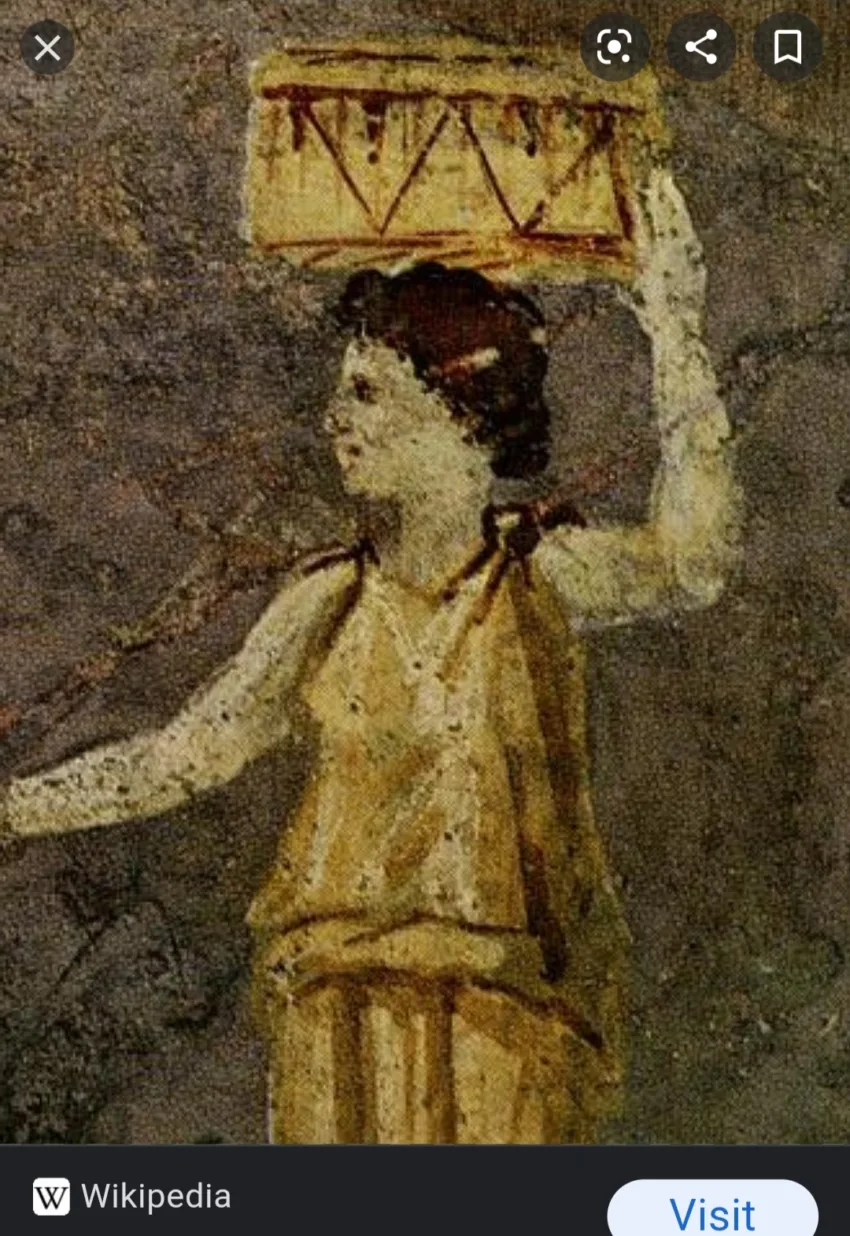1189: Hipparchia of Maroneia
Greek Philosopher
Born: c.340-330 BCE, Maroneia, Thrace, Ancient Greece (Present-day Maroneia, Greece)
Died: c. 280 BCE, Athens, Ancient Greece (Present-day Athens, Greece)
She is known for being drawn to the Cynic lifestyle, one of the few women to study philosophy in Ancient Greece. While little biographical information about her early life survives, it is thought that she was born to a prosperous and wealthy family who may have been involved in the production of wine. Instead of choosing to become a wealthy wife and mother, as was expected of her, Hipparchia instead became a follower of the Cynic lifestyle in her early teens, and may have been introduced to it by her brother who was also a Cynic.
She was married to Crates the Cynic, a fellow philosopher and proponent of the Cynic lifestyle, which dictated they purposefully lived in poverty. While she was famous for her marriage, she was also, supposedly, infamous for it as well because she consummated the marriage in public. Some ancient sources indicate they had either one or two children together.
According to the Internet Encyclopedia of Philosophy:
“The story of Hipparchia’s Cynic marriage quickly became the premiere example of that virtue, which is based on the Cynic belief that any actions virtuous enough to be done in private are no less virtuous when performed in public.”
Evidently Hipparchia was very young, while Crates was much older, when they married. According to one source, the marriage only took place because Hipparchia threatened to kill herself if Crates refused to marry her. The couple, and their children, lived as homeless wanderers in the streets of Athens, promoting the Cynic lifestyle to others as they did so. The ancient sources state that Hipparchia raised her son according to her views on life. His cradle was a hard tortoiseshell, he was bathed in cold water, and her son was given just barely enough food to survive. Hipparchia and her husband begged for every drop of food they consumed and wanted their son to follow their teachings. No source data survives on how Hipparchia raised their daughter (shocking, I know) but given what we know about Hipparchia and her convictions, she most likely raised her daughter exactly the same as her son.
No writings that have been proven to be written by Hipparchia survive today, but what is known is that she challenged traditional gender roles and also was a big influence on her husband’s life and writings. While getting married went against the Cynic lifestyle, Hipparchia’s marriage to Crates was a way for the couple to showcase a new role for women in marriage and also advertise, for lack of a better term, the Cynic lifestyle to a wider audience.
It is believed Crates died first, and Hipparchia took over his teachings and school after his death in order to keep the message going. Some sources go on to state that Hipparchia died later the same year. If so, she did not lead his school for long, but the very fact that she did at all is groundbreaking for her time period.
The only piece of writing that has survived to present-day, that may have been written in part by Hipparchia, is the epigram that supposedly marked her tomb. The Roman poet Antipater of Sidon wrote the following, which he claimed was written on her tombstone:
“I, Hipparchia, have not followed the habits of the female sex
But with manly courage, the strong dogs – the Cynics.
I have not wanted the jewel on the cloak nor bindings for my feet
Nor head ties scented with ointment; rather a stick, bare feet, and
Whatever covering clings to my limbs, and hard ground instead of a bed.”
The epigram supposedly ended with the line “My name shall be greater than Atalanta, for wisdom outshines mountain running”—which alludes to the mythological figure Atalanta, who was a huntress known for her running prowess. Atalanta is also remembered for living her life according to the way she wanted, not the role men tried to bestow upon women in Ancient Athens.
Hipparchia’s name is listed as a part of Judy Chicago’s “The Dinner Party” art installation.
Badges Earned:
Located In My Personal Library:
“Goddesses, Whores, Wives, and Slaves: Women in Classical Antiquity” by Sarah B Pomeroy
Sources:
https://www.worldhistory.org/Hipparchia_of_Maroneia/
https://www.worldhistory.org/article/121/hipparchia-the-cynic-devoted-wife-mother--outspoke/
https://www.brooklynmuseum.org/eascfa/dinner_party/heritage_floor/hipparchia

